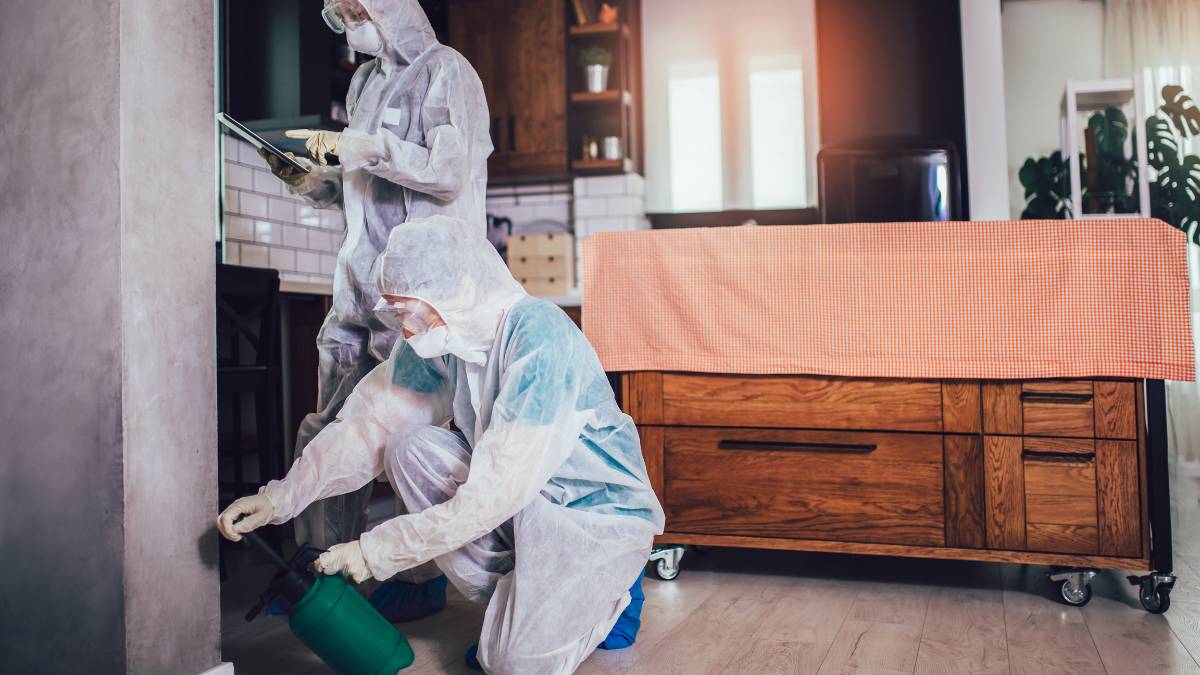Last Updated on February 9, 2024 by Kravelv Spiegel
Commercial real estate investors should consider pest control as a critical aspect of property management and maintenance to protect their investments and ensure tenant satisfaction.
Key considerations for implementing effective pest control measures in commercial properties:
Integrated Pest Management (IPM) Approach: Adopt an IPM approach, which focuses on preventing pest infestations through proactive measures such as sanitation, structural repairs, and monitoring. IPM emphasizes minimizing reliance on pesticides and instead emphasizes prevention, habitat modification, and non-chemical control methods.
Regular Inspections: Schedule routine inspections of the property by licensed pest control professionals to identify any signs of pest activity or conditions conducive to infestations. Early detection allows for prompt intervention before pest problems escalate.
Seal Entry Points: Seal potential entry points around the property, including gaps around doors, windows, utility penetrations, and cracks in the building’s exterior. Preventing pests from gaining access to the interior reduces the likelihood of infestations.
Proper Waste Management: Implement proper waste management practices to minimize food sources for pests. Ensure that trash bins are emptied regularly, and garbage storage areas are kept clean and sealed to prevent pest access.
Landscaping Maintenance: Maintain landscaping around the property to eliminate harborage areas for pests such as rodents, ants, and cockroaches. Trim vegetation away from the building, remove debris, and address any standing water sources that may attract pests.
Tenant Education: Educate tenants about their role in pest prevention and encourage them to report any pest sightings or concerns promptly. Provide guidelines on proper food storage, waste disposal, and housekeeping practices to help minimize pest attractants within individual leased spaces.
Pest-Resistant Building Materials: Consider using pest-resistant building materials during construction or renovation projects, such as steel framing instead of wood or incorporating pest-proof seals and barriers where feasible.
Regular Cleaning and Maintenance: Maintain a clean and well-maintained environment throughout the property, including common areas, tenant spaces, and storage areas. Regular cleaning reduces the availability of food, water, and shelter for pests, making the property less hospitable to infestations.
Effective Pest Control Treatments: When pest control treatments are necessary, work with reputable pest management professionals who employ effective, environmentally responsible methods. Ensure that treatments are targeted, using the least toxic options possible, and follow all applicable regulations and safety guidelines.
Documented Pest Control Plan: Develop a comprehensive pest control plan for the property, including protocols for prevention, monitoring, and response to pest issues. Keep detailed records of inspections, treatments, and any corrective actions taken to address pest problems.
Here are additional points tailored specifically for commercial property pest control in Columbus Ohio, along with the provided website:
Local Pest Knowledge: Partner with a pest control provider familiar with the specific pest challenges common to Columbus, Ohio, and the surrounding area. Local expertise can help tailor pest management strategies to address regional pest species and seasonal trends effectively.
Weather Considerations: Take into account the local climate and seasonal changes when developing pest control strategies. Columbus experiences a range of weather conditions throughout the year, which can influence pest activity and behavior.
Bird Control Measures: Implement bird control measures, such as bird spikes, netting, or deterrent devices, to prevent pest bird infestations that can cause damage to commercial structures and pose health risks.
Rodent Exclusion: Implement rodent exclusion measures, such as installing rodent-proof barriers and sealing entry points, to prevent mice and rats from accessing the property and causing damage to buildings and infrastructure.
Specialized Treatments: Consider specialized treatments for specific pest issues common to commercial properties in Columbus, such as bed bug treatments for hotels, restaurants, and multi-family housing units.
Food Handling Facilities: If the commercial property includes food handling or processing facilities, ensure compliance with food safety regulations and implement pest management practices tailored to the unique challenges of these environments.
Integrated Bird Management (IBM): For properties with significant bird control challenges, consider implementing Integrated Bird Management (IBM) programs that combine habitat modification, exclusion techniques, and targeted deterrents to effectively manage bird populations.
Green Pest Control Options: Explore environmentally friendly pest control options, such as botanical insecticides or biological control agents, to minimize environmental impact and meet sustainability goals.
Emergency Response Protocols: Establish emergency response protocols for addressing pest-related emergencies, such as sudden infestations or pest-related health hazards, to ensure swift and effective resolution.
Continuous Monitoring: Implement continuous monitoring programs, such as insect light traps or pheromone traps, to detect pest activity early and track trends over time, allowing for proactive intervention and prevention.
For commercial property pest control services in Columbus, Ohio, you can visit https://www.countypestcontrol.org/ to learn more about County Pest Control and their offerings in the area. County Pest Control provides comprehensive pest management solutions tailored to the needs of commercial properties, including inspection, treatment, and ongoing monitoring services.

